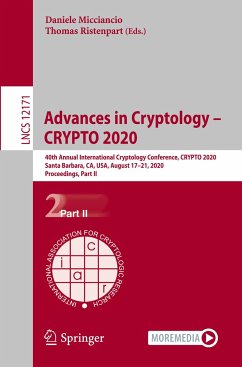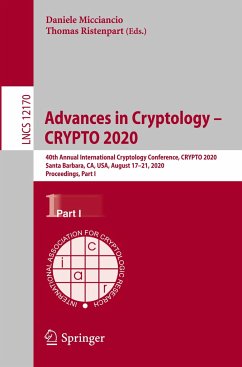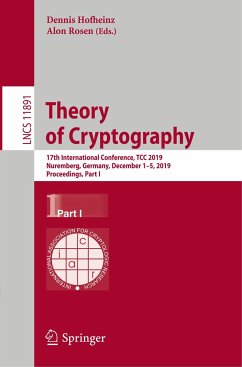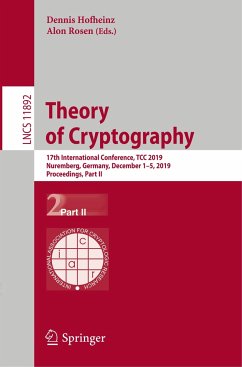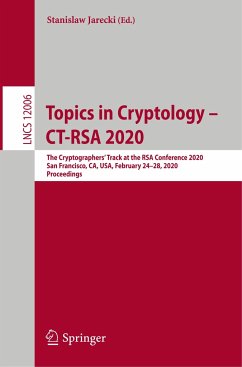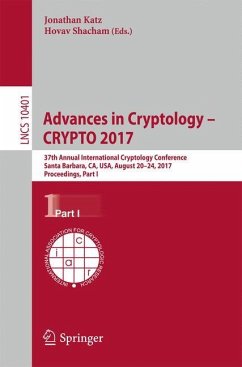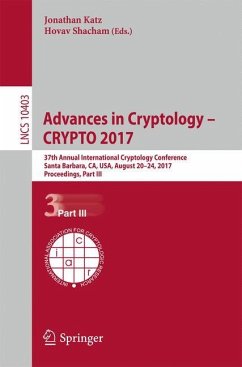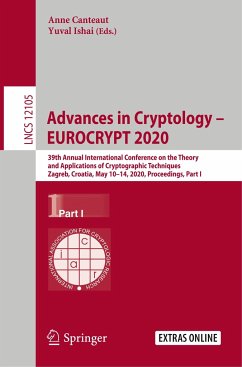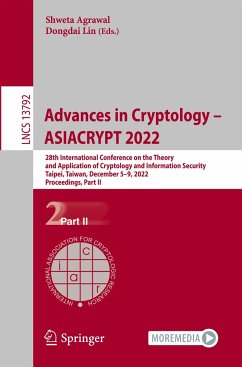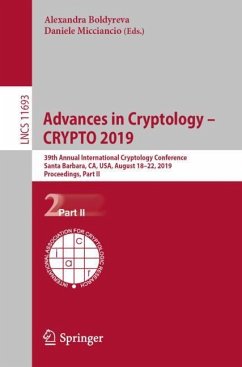
Advances in Cryptology - CRYPTO 2020
40th Annual International Cryptology Conference, CRYPTO 2020, Santa Barbara, CA, USA, August 17-21, 2020, Proceedings, Part III
Herausgegeben: Micciancio, Daniele; Ristenpart, Thomas

PAYBACK Punkte
0 °P sammeln!
Conference on Cryptologic Research, CRYPTO 2020, which was held during August 17-21, 2020. Crypto has traditionally been held at UCSB every year, but due to the COVID-19 pandemic it will be an online event in 2020.The 85 papers presented in the proceedings were carefully reviewed and selected from a total of 371 submissions. They were organized in topical sections as follows:Part I: Security Models; Symmetric and Real World Cryptography; Hardware Security and Leakage Resilience; Outsourced encryption; Constructions.Part II: Public Key Cryptanalysis; Lattice Algorithms and Cryptanalysis; Lattic...
Conference on Cryptologic Research, CRYPTO 2020, which was held during August 17-21, 2020. Crypto has traditionally been held at UCSB every year, but due to the COVID-19 pandemic it will be an online event in 2020.
The 85 papers presented in the proceedings were carefully reviewed and selected from a total of 371 submissions. They were organized in topical sections as follows:
Part I: Security Models; Symmetric and Real World Cryptography; Hardware Security and Leakage Resilience; Outsourced encryption; Constructions.
Part II: Public Key Cryptanalysis; Lattice Algorithms and Cryptanalysis; Lattice-based and Post Quantum Cryptography; Multi-Party Computation.
Part III: Multi-Party Computation; Secret Sharing; Cryptanalysis; Delay functions; Zero Knowledge.
The 85 papers presented in the proceedings were carefully reviewed and selected from a total of 371 submissions. They were organized in topical sections as follows:
Part I: Security Models; Symmetric and Real World Cryptography; Hardware Security and Leakage Resilience; Outsourced encryption; Constructions.
Part II: Public Key Cryptanalysis; Lattice Algorithms and Cryptanalysis; Lattice-based and Post Quantum Cryptography; Multi-Party Computation.
Part III: Multi-Party Computation; Secret Sharing; Cryptanalysis; Delay functions; Zero Knowledge.





